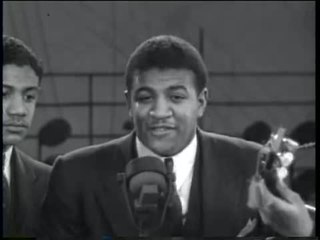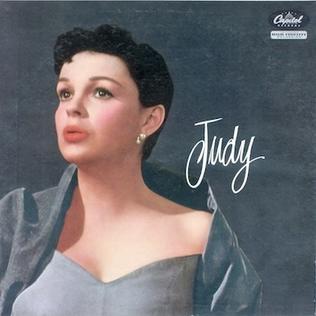Related Research Articles
This is a list of notable events in music that took place in the year 1926.

George Gard "Buddy" DeSylva was an American songwriter, film producer and record executive. He wrote or co-wrote many popular songs and, along with Johnny Mercer and Glenn Wallichs, he co-founded Capitol Records.
Ray Henderson was an American songwriter.

Lew Brown was a lyricist for popular songs in the United States. During World War I and the Roaring Twenties, he wrote lyrics for several of the top Tin Pan Alley composers, especially Albert Von Tilzer. Brown was one third of a successful songwriting and music publishing team with Buddy DeSylva and Ray Henderson from 1925 until 1931. Brown also wrote or co-wrote many Broadway shows and Hollywood films. Among his most-popular songs are "Button Up Your Overcoat", "Don't Sit Under the Apple Tree", "Life Is Just a Bowl of Cherries", "That Old Feeling", and "The Birth of the Blues".
"Button Up Your Overcoat" is a popular song. The music was written by Ray Henderson, the lyrics by B.G. DeSylva and Lew Brown. The song was published in 1928, and was first performed later that same year by vocalist Ruth Etting. However, the most famous rendition of this song was recorded early the following year by singer Helen Kane, who was at the peak of her popularity at the time. Kane's childlike voice and Bronx dialect eventually became the inspiration for the voice of cartoon character Betty Boop.
"The Birth of the Blues" is a popular 1926 song composed by Ray Henderson, with lyrics by Buddy DeSylva and Lew Brown. It was used in the Broadway revue George White's Scandals of 1926. It was recorded in its debut year by Paul Whiteman, Harry Richman, and The Revelers.
"It All Depends on You" is a 1926 popular song with music by Ray Henderson, lyrics by Buddy G. DeSylva and Lew Brown. The song, written for the musical Big Boy, was published in 1926. It was featured in the hit 1928 Warner Bros. film The Singing Fool, starring Al Jolson, Betty Bronson and Josephine Dunn, and directed by Lloyd Bacon.
"You're the Cream in My Coffee" is a popular song published in 1928. Popular recordings were by Annette Hanshaw, Ben Selvin, Ted Weems and Ruth Etting.

"My Melancholy Baby" is a popular song published in 1912 and first sung publicly by William Frawley. The music was written by Ernie Burnett (1884–1959), the lyrics by George A. Norton.

"Somebody Loves Me" is a popular song, with music written by George Gershwin, and lyrics by Ballard MacDonald and Buddy DeSylva. The song was published in 1924 and featured in George White's Scandals of 1924.

"Que reste-t-il de nos amours ?" is a French popular song, with music by Léo Chauliac and Charles Trenet and lyrics by Charles Trenet. A version of the song with English lyrics entitled "I Wish You Love" is recognizable by the opening line "I wish you bluebirds, in the spring".

"Dinah" is a popular song published in 1925 and introduced by Ethel Waters at the Plantation Club on Broadway. It was integrated into the show Kid Boots. The music was written by Harry Akst and the lyrics by Sam M. Lewis and Joe Young. Hit versions in 1926 were by Ethel Waters, The Revelers, Cliff Edwards, and Fletcher Henderson.
"Last Night on the Back Porch (I Loved Her Best of All)" is a popular song with music by Carl Schraubstader and lyrics by Lew Brown, published in 1923. It was introduced in the Broadway revue George White's Scandals where it was performed by Winnie Lightner.

"Alabamy Bound" is a Tin Pan Alley tune written in 1924, with music by Ray Henderson and words by Buddy DeSylva and Bud Green. It was popularized by Al Jolson and included in the musical Kid Boots, where it was sung by Eddie Cantor. Successful recordings of the song were released in 1925 by Paul Whiteman, Isham Jones and Fletcher Henderson (instrumentals), as well as Blossom Seeley, whose vocal version reached number 2 on the charts. The song has sold over a million copies of sheet music and has been included in several films over the years.
Lucky Day may refer to:

Days of Wine and Roses and Other TV Requests is the eleventh studio album by American pop singer Andy Williams and was released in April 1963 by Columbia Records following his first season as host of his variety series, The Andy Williams Show. The LP has a studio recording of the closing theme from the show, "May Each Day", and continues the format of his previous Columbia releases by including songs from the 1920s, 1930s, 1940s, and 1950s.

Judy is a 1956 studio album by Judy Garland, her second LP on the Capitol label, arranged by Nelson Riddle.
"So Blue" is a 1927 song written by Buddy DeSylva, Lew Brown, and Ray Henderson. The song has been covered by numerous artists and popular recordings in 1927 were by Paul Whiteman, Vincent Lopez and by Nick Lucas.
"The Best Things in Life Are Free" is a popular song written by the songwriting team of Buddy DeSylva and Lew Brown (lyrics) and Ray Henderson (music) for the 1927 musical Good News. It enjoyed a revival during the period from 1947 to 1950, when it was covered by many artists.

"Stairway to Paradise", also known as "I'll Build a Stairway to Paradise", is a song composed in 1922 by George Gershwin with lyrics by Ira Gershwin and Buddy DeSylva for the Broadway revue George White's Scandals. Popular recordings in 1922–23 were by Carl Fenton; Paul Whiteman; and by Ben Selvin.
References
- ↑ Stanley Green Encyclopedia of the Musical Theatre Page 99 078674684X - 2009 "The first DeSylva-Brown-Henderson song was "It All Depends on You" for Big Boy, and their first score was for George White's Scandals of 1925. For the next year's edition, they had two hits; "Lucky Day" and "The Birth of the Blues.
- ↑ David Ewen All the years of American popular music 1977 p339 0130224421 "... Henderson. De Sylva, Brown and Henderson wrote all the songs for the George White Scandals editions of 1925, ... In it were "Black Bottom," danced by Ann Pennington in a routine largely devised by George White, "Lucky Day," sung by Harry Richman."
- ↑ Whitburn, Joel (1986). Joel Whitburn's Pop Memories 1890-1954 . Menomonee Falls, Wisconsin: Record Research Inc. p. 545. ISBN 0-89820-083-0.
- ↑ "allmusic.com". allmusic.com. Retrieved May 6, 2020.
- ↑ "Discogs.com". Discogs.com. Retrieved May 6, 2020.
- ↑ "Discogs.com". Discogs.com. Retrieved May 6, 2020.